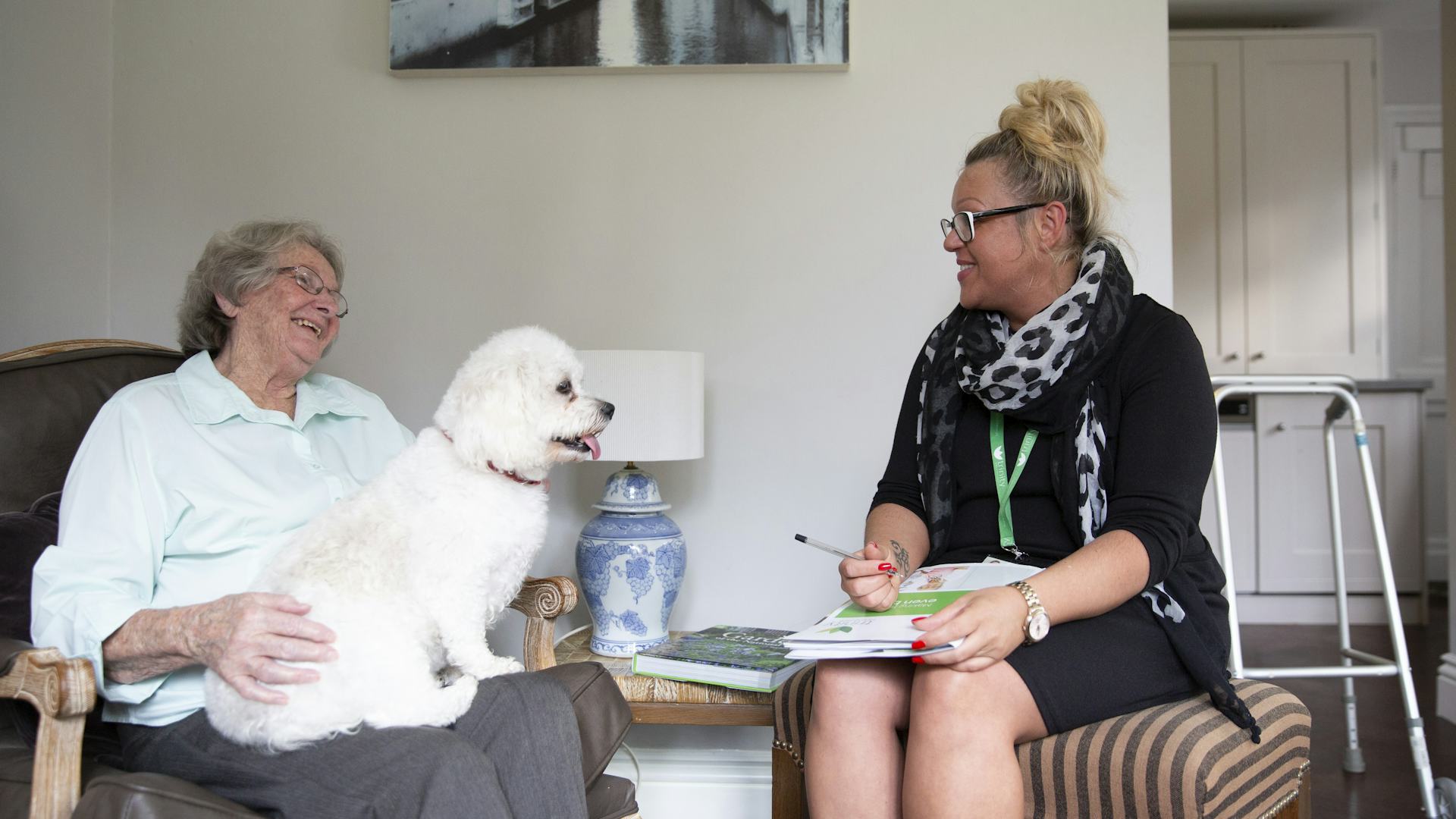What is the easiest way to choose a home care agency?

When a loved one needs support, choosing the type of care and right care provider is a big decision. But with so much choice, what is the best way to choose a home care agency? In this article we will discuss the types of care that are available and how to go about finding the agency or care provider that is best for you.
What type of care and support do you need?
Now you have come to the decision that you or a loved one needs additional support; you need to think about the level and type of support needed.
Daily tasks which commonly require additional support to help someone live independently are:
- Preparing and cooking meals
- Moving around the home safely
- Personal hygiene and care
- Household tasks such as cleaning and tidying
- Shopping or going to appointments such as the GP
- Companionship
Where possible, it is best to keep the person doing as much as they can on their own, even if it requires support and to just keep an eye out for safety. However, if they struggle to live independently with any of the above, a professional carer will be able to allow them to continue to live happily at home.
Most good home care providers or your local authority should be able to assess your loved one and determine the level of support they need. Knowing what may or may not be needed will guide you to what level of support your loved one may need. This could be anything from:
- Occasional or daily visit up to an hour each time
- Regular daily visits up to an hour each time to support at meal or cleaning times
- Companionship visits
- Care throughout the day
- Live-in care for the day, where the carer sleeps at night
- Live-in care plus night care support
- Respite care to allow the current carer free time to take a break
Different agencies and care providers will be able to cater for different levels of care.
How to look for a care agency

There are a variety of places to start your search and a number of factors you should consider when it comes to finding the right company to assist you with providing care.
1. Get Assessed
You should contact your local adult services department with your local authority. They can conduct a care needs assessment that will look at the care required and the options you have available. This will also look to see if there is any help you might be able to receive. The NHS website [Find Local Authority Adult Social Care services – NHS (www.nhs.uk)] will direct you to your relevant Local Authority Adult Social Care service.
If you are unable to receive funding from your local authority, you will have to find a private care provider or agency. Support at home is often self-funded. You can find out more in our article about funding care. Your locally authority may refer you to a recommended home care provider.
2. Ask around
Asking family, friends, or community groups such as a church if they know of any reputable local care providers is an effective way to start a list. You can also search online to see what care providers are in your local area.
3. Search on trusted sites
Searching on the internet for a care provider can be overwhelming. There are many to choose from and sometimes it is hard to tell who is good and who isn’t. Often the top spot of search results or a directory doesn’t necessarily mean they are the best.
Independent trusted organisations such as the Live-in Care Hub, the Homecare Association, and the CQC, are a good place to start when searching for care agency.
Knowing exactly what you are looking for will help this search.
What to look for in a care provider

1. Live in or visiting
If you feel your loved one needs a full-time support to ensure their happiness and safety, a live-in carer (or more) may be needed. If they don’t need constant supervision, but just help with daily tasks, then a visiting carer may suit.
2. Care Agency vs CQC Regulated Care
There are two main types of care companies. Managed services that are regulated by CQC and introductory agencies. Both will offer a similar type of services with the difference being that the introductory agency will introduce you to a carer that best matches your needs that you will employ directly. The regulated service, like Trinity, will create a care plan, manage the carer for you, and meet the CQC standards.
Regulated services are regularly inspected by the Care Quality Commission and rated on the standard of service they provide. They will also hold a report on each of the services that are viewable via the CQC website
3. CQC rating
CQC ratings are very important. All health and social care services in England are regulated and assessed by the CQC. They rate a company on how caring, well-led etc they are. A company can either be unrated, require improvement, good, or outstanding.
4. Location
Mainly with visiting care services, it is sometimes preferable to receive care from a local provider as that carer will be visiting multiple clients in a day. You can find information about local care providers in local publications, from your local authority, and on online search directories which filter by location. Many live-in care providers have a large network of carers and Care Managers so proximity to headquarters isn’t necessary. For example, Trinity Homecare’s head office is in Surrey but we can run a carer assessment and deploy a live-in carer to most locations in South England as easily as our Carer Managers are based across the country.
5. Length of care and immediacy of start
One of things that sets companies apart is the flexibility. Some companies can complete an assessment and have a carer in place within 24hours, others may take longer. The length of a care package can also vary; some companies may require a minimum of four week placements, and others may be able to provide respite care for just a few days. Determine what you need before you call so you can find the right care agency for you. Due to a current nationwide shortage of care workers, most care companies will be less flexible in this regard.
6. Level of service or specialism
Some agencies can provide carers who are particularly skilled in certain areas. For example, at Trinity, all our carers undertake mandatory dementia training so all our carers can compassionately care for those living with dementia. Other companies may specialist in young adults with disabilities, cancer care, nursing requirements etc.
How can Trinity Homecare Help?
Trinity Homecare is regulated by the Care Quality Commission. Trinity have been rated ‘Outstanding’ by the CQC for our services. This places Trinity Homecare in the top 3% of all home care services in the country.
Trinity offers a range of visiting and live-in care services
These services include:
Our range of outstanding and bespoke services are available in our Types of Care section. Here you can find-out more about each service, feeling better informed when you contact any care agency to enquire for help.
There is also a detailed Help and Advice section along with our guide library where you can download more information.
Good luck with your search for care. We hope you find the right care provider for you. If you would like to speak with our friendly care experts, then you can call us on 020220202 or complete an online enquiry form.








